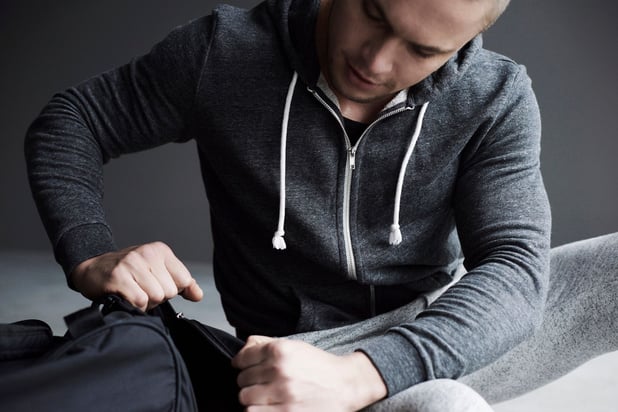Dealing with substance abuse issues and entering a treatment program is a big leap of faith. Each of us face unique obstacles as we try to find ways to accommodate family and career needs. Someone who is suffering from addiction must put rehabilitation first and find other ways to take care of other obligations while in treatment.
Whatever treatment plan you decide on, there are some common steps needed before entering treatment.
1. Notify your work.
Telling your boss that you are taking time to resolve your addiction issues is necessary, but not an easy task. The Family and Medical Leave Act allows for up to 12 weeks of medical leave. This will allow you to relax knowing that your job will be protected while you are in treatment. But substance abuse still carries a stigma that may be difficult for co-workers to understand or accept. Some who are unfamiliar with addiction believe that drug and alcohol abuse is a character flaw or a lack of willpower. Many addicts often believe they have to justify their decision to others who may be critical of the decision to leave their lives pending and enter rehab. The key is to remember there is nothing more important than ending the cycle and dependence on drugs.
2. Arrange family care.
For many parents entering a recovery program, their biggest fear is that their children may be taken away. Typically, mothers face an extra responsibility in assuring that their children are cared for while they are in treatment, whether it is at in-patient or intense out-patient. While it is common for other parents not to understand addiction, honestly explaining the situation can help make them more willing to step up and help out.
Arrange for carpools, meal preparations, after-school activities so that the disruption to your kid’s schedules is minimal. Count on family, friends or even temporary care to give you peace of mind while you are conquering your addiction. Support from family members, especially a spouse, is irreplaceable during and after recovery so that the other can continue to attend meetings and embrace a sober life. In rare cases, there are self-help groups that connect parents with other families to watch the children so the parent can attend counseling sessions. Above all, do not be afraid to ask for help.
3. Pay your bills.
Pay any bills in advance or sign-up for automatic payments so you do not have this worry while you are working to end your substance abuse issues. When you return from rehabilitation, you want to avoid any unnecessary financial stress. Whether you choose in-patient or an out-patient rehabilitation program put together a budget that allocates money for groceries, kid’s activities, babysitting, monthly bills or whatever is going to place during your recovery. This will allow you to have control over your finances, keep the household running and assure that your loved ones back home won’t miss out on any events while you are recovering.
4. Legal Issues
If you have outstanding legal issues, be sure to speak with your attorney before entering any addiction treatment. If you are expected to be in court while you are in rehabilitation, assure you communicate with your lawyer in advance to avoid any additional penalties. Be honest with your legal counsel and let them know the details of your treatment program and any rules the facility may have about contact with outside parties. The last thing you want to experience is additional legal issues when you begin your sobriety.
5. Pack (lightly).
If you are entering an inpatient or residential facility, take only the things you really need. Most facilities have firm guidelines on what you are permitted to bring to an in-patient treatment program. Outpatient programs also have restrictions, so review this information with an administrator in advance of your attendance. It should go without saying that alcohol, drugs, and weapons are never permitted. Many do not permit electronic devices. If you are under the care of a physician and take prescription drugs, this must be cleared with the facility in advance. Although it may be tempting, don’t bring expensive or irreplaceable items, even if they have a personal connection to your loved ones back home. By sticking to the essentials, you will minimize any outside distractions. Drug treatment programs want you to be comfortable, but also require that the focus remains on your recovery.
A sober, healthy life is the best possible gift you can give your loved ones and yourself, but it will not be easy. You’ll have to work hard, give up your daily routine, seeing your family, running a household or your career. These are challenges you must face head on to save your life from substance abuse and for the sake of all those you care about. At the end of it all, you’ll come out into a new path of sobriety which will bring back a much brighter, more joyful life.
|
If you or someone you know is seeking help from addiction, please visit our directory of treatment centers or call 800-891-8171 to speak to a treatment specialist. |








